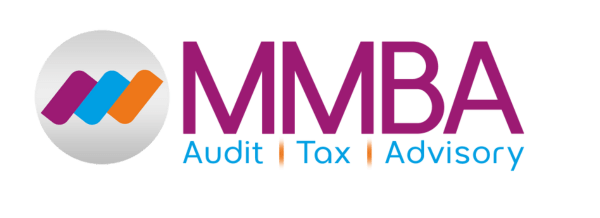
Everything You Need to Know about Debtor and Creditor from an Accountant’s Lens
Recent Blog
Subscribe to Newsletter
Table of Contents
Debtors owe money and creditors as those who are owed. Their financial roles underscore the need for effective payment management, symbiotic supplier relationships, and how to maintain positive cash flow for business success.
It is important to understand the debtor and creditor relationship because it is necessary for any individual or business who manages their cash flow everyday. Moreover, these two terms define key roles in financial transactions, where one party owes and the other is owed money. This guide will cover everything you need to know about debtors and creditors, their differences, and their significance in financial management.
Lets have a look at the two terms– creditor and debtor key differences:

Who is a Debtor?
A debtor is an individual, business, or any other entity that owes money to another party, in simple terms. Additionally, this happens when the debtor has received goods or services without paying for them upfront or he has borrowed money from a creditor. In simple terms, if you borrowed money or received products on credit, then you become a debtor.
To clarify it further, let’s have a look at its examples. Examples of debtors include individuals with loans, businesses having debt to their suppliers, or customers who have not yet paid their invoice.
Examples of Debtors:
- A business that has received goods or services but has yet to pay the remaining amount.
- An individual with a personal loan under the debt.
- A trade debtor, which is a business that owes money for supplied goods to others.
Who is a Creditor?
A creditor is the opposite of a debtor. It is the party which provides money or goods and expects payment. A creditor can be a person, bank, and even can be a business that lends money or provides goods on credit. Creditors are owed money and they record all these moneys as liabilities on the balance sheet. A trade creditor, for instance, is a business that supplies goods on credit. However, he expects payment at a later date.
Types of Creditors:
There are two types of creditors:
- Loan creditors: Loan creditors are financial institutions like banks that have loaned money to another entity.
- Trade creditors: Suppliers who provide goods or services to businesses without immediate payment.
The Difference Between Debtors and Creditors
There are many difference in the debtors and creditors. However, the key difference between debtors and creditors is their role in financial transactions. Debtors owe money to others, while creditors are the ones to whom money is owed. In essence, a creditor and a debtor relationship forms the backbone of many business transactions in cash or on credit. Creditors explained business’s growth, as they provide the necessary products or funds for operations.
Importance of Timely Payments to Creditors
Timely payments to creditors maintains strong financial health to avoid unnecessary costs. Late payments cause strain on the relationships between a creditor and a debtor. Businesses need to meet payment deadlines as failure to do affects their ability to borrow money from an institution in the future.
Monitoring the date of the invoice and maintaining communication with suppliers help businesses avoid these issues. For instance, a trade creditor is an entity that provides goods or services but expects payment at a later date, this makes it quite essential for companies to settle their debts in a timely manner.
Contact us for expert guidance on
debt and credit management.
Call us Today
Managing Goods and Services Transactions
In any business, transactions involving goods and services play a pivotal role in operations. When a business receives goods without paying upfront, it takes on the role of a debtor, while the supplier or entity which has supplied becomes the creditor.
In addition, efficiently managing these transactions makes sure that both parties fulfill their obligations. Additionally, it helps maintain strong business relationships and keeps the liabilities on your balance sheet at a manageable level.
Managing Debtor and Creditor
Managing debtors and creditors efficiently is essential to smoothly operate any business, especially small businesses. For example, businesses need to make sure that payments from debtors are collected on time to avoid cash flow issues. Similarly, maintaining good relationships with creditors is equally important to secure longer or more favorable payment terms.
Managing creditors and debtors is technical. So, one must not overlook the tips.
Tips for Managing Debtors
- Set clear payment terms to ensure timely payment.
- Monitoring invoices and to chase late payments to avoid overdue balances.
- Having a good relationship with accountants to accurately track finances.
Tips for Managing Creditors
- Always know when payment is due to avoid penalties.
- Keeping the communication open with your business’s creditors
- Aspiring for potential longer credit terms.
- Timely repayment to avoid strained business relationships.
Importance of Cash Flow
As already stated, cash flow management is critical for both debtors and creditors. A business need to make sure that it receives payments from its debtors on time to maintain positive cash flow. Also, it manages outflows to creditors to guarantee it doesn’t become a debtor itself. Debtors may create cash flow issues if they delay payments. Nonetheless, timely payment of creditors stabilises the performance of your business.
Creditors and Late Payments
Late payments from debtors can severely impact your business because unpaid invoices hurt your financial position. Chasing late payments and making sure that the invoice is paid on time will help protect your cash flow. Creditors also play a role here, because they might impose interest or fees for late payment.
Loans and Borrowing between Creditor and Debtor
When you take out a loan from a bank or any other financial institution, you become a debtor, and the bank becomes your creditor. The money you owe is repaid over time, often with an interest rate. Businesses may also take out loans to finance operations, making them debtors to their business’s creditors until the loan is paid back.
As already stated, cash flow management is critical for both debtors and creditors. A business need to make sure that it receives payments from its debtors on time to maintain positive cash flow. Also, it manages outflows to creditors to guarantee it doesn’t become a debtor itself. Debtors may create cash flow issues if they delay payments. Nonetheless, timely payment of creditors stabilises the performance of your business.
Conclusion
It is fundamental to understand the relationship between a debtor and a creditor for maintaining a healthy financial environment –managing a business or personal finances. Effective management of debtors and creditors helps in sustaining a positive cash flow also it make sures that you maintain strong business relationships with your suppliers and financial institutions.
FAQs about Debtors and Creditors
What happens if a debtor misses a payment?
If a debtor misses a payment, it leads to a late payment. This greatly affects the cash flow and increases the risk of liability on the balance sheet. However, usually, a creditor may take action to recover the debt, he can do so by imposing interest or late fees. Businesses need to make sure that debtors get paid on time which is imperative to avoid financial stability disruptions.
How can businesses manage their relationships with suppliers?
Managing relationships with suppliers guarantees smooth business operations. Businesses that pay suppliers on time can avoid strained relationships. Firstly, they can do so by setting clear payment terms. Secondly, they can monitor the date of the invoice. Lastly, building strong communication channels with suppliers also results in mutually beneficial payment terms or discounts.
What role do accountants play in managing creditors and debtors?
An accountant manages the finances of a business. He carries out activities such as tracking payments to creditors and collections from debtors. For example, MMBA Accountants maintain accurate records to meet financial obligations to avoid unnecessary liabilities. In some cases, businesses may consult accountants in London or other financial professionals to get expert advice.


